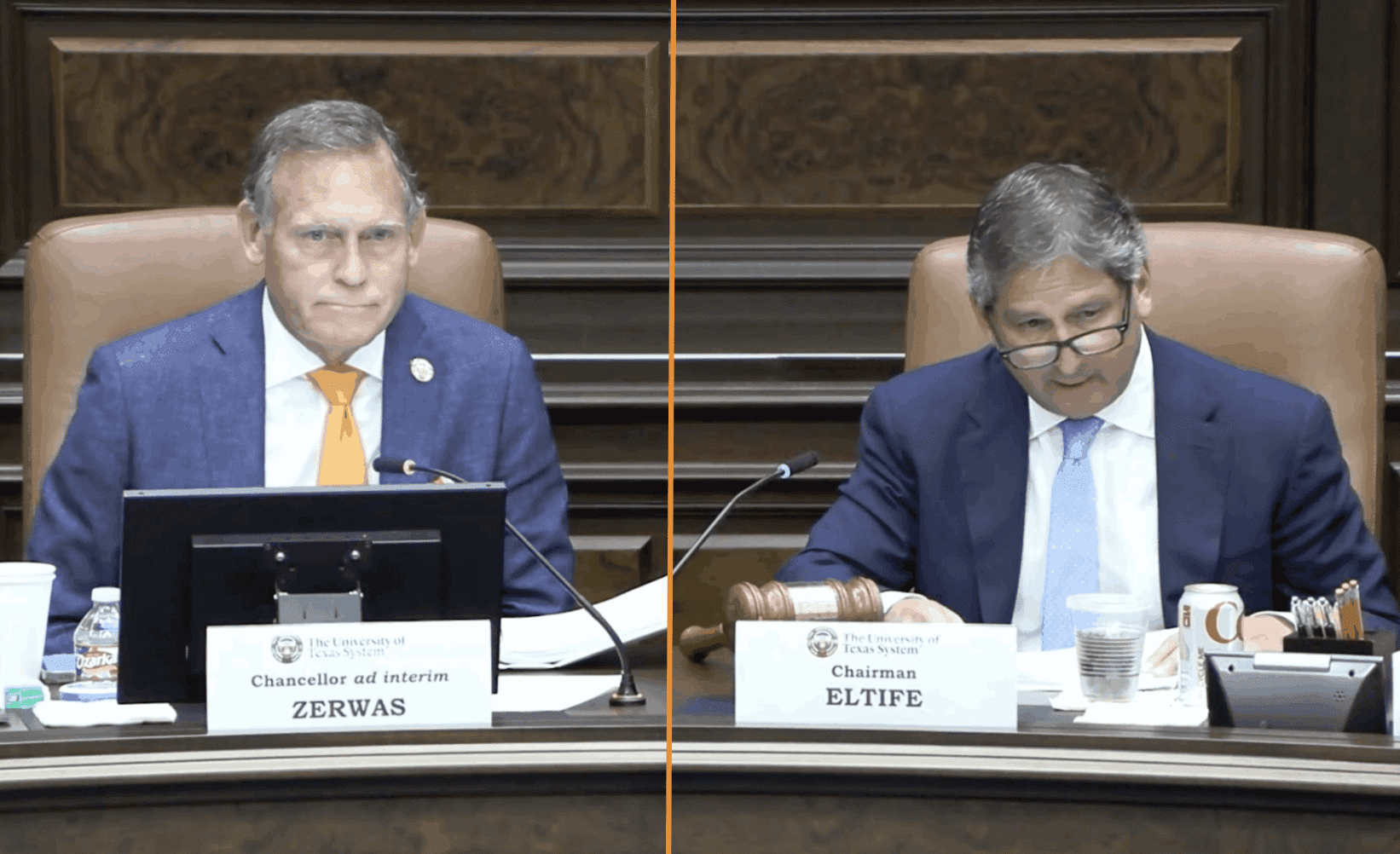Legislation that will change the internal governance of public universities and grant new oversight authority to boards of regents is headed to Gov. Greg Abbott.
Proposed measure Senate Bill 37, by State Sen. Brandon Creighton (R–Conroe), abolishes the practice of shared governance at Texas’ public universities. It also grants boards of regents more authority over hiring decisions and curricula.
In state universities, “shared governance” describes a system in which universities’ boards of regents share power with the faculty, which is represented by a faculty senate—or, in the case of the University of Texas-Austin, a faculty council.
Boards of regents are accountable to Texans through the governor, who appoints them, and state senators confirm their appointments. Faculty senates have no such accountability.
Critics have argued that university faculty have been a source of woke ideologies at universities, leveraging “shared governance” to advance their activist agendas both in the classroom and on campus.
The legislation also requires board of regents to conduct a review of all general education curricula every five years to ensure they “are foundational and fundamental to a sound postsecondary education, are necessary to prepare students for civic and professional life; equip students for participation in the workforce and in the betterment of society; and ensure a breadth of knowledge in compliance with applicable accreditation standards.”
University presidents will have to identify programs with low enrollment that may require consolidation or elimination, subject to board approval.
According to Jeramy Kitchen of Texas Policy Research, the final iteration of the measure blends different forms of the bill passed by the House and Senate during the legislative process. It is closer to the House’s version but keeps key aspects of both proposals.
“While the Senate Engrossed version set the ideological tone and broad objectives, the House Committee Substitute shaped the operational, structural, and procedural details,” Kitchen explained to Texas Scorecard.
Both chambers’ variants declared that faculty senates may only serve in an advisory role, but the final form retains House language that provides for a detailed structure for these entities, including representation of various departments and term limits. The final iteration also retains House language, explicitly allowing for boards of regents to overrule hiring decisions made for senior positions on campus, such as vice presidents and deans.
“The House version served as the framework for several structural and procedural changes that made it into the conference committee report,” Kitchen continued.
Abbott is expected to sign the measure into law in the coming weeks.
No ads. No paywalls. No government grants. No corporate masters.
Just real news for real Texans.
Support Texas Scorecard to keep it that way!





